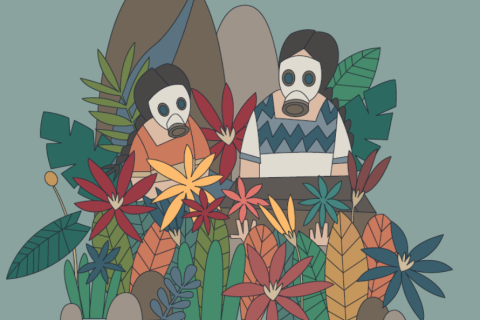Women, health and water – striving for environmental justice in the agribusiness sector

Agribusinesses produce and distribute agricultural goods at a global scale. Goods sold in the world market have an effect on the lives of many people along the production and distribution chain and working in the production-side can be an attractive employment opportunity, especially for individuals with little access to education and financial resources.
Women, in particular, perform “low-skilled” tasks and are often casual workers in agribusiness in the Global South, but their work has been associated with adverse reproductive, neurological and respiratory health effects. Moreover, environmental pollution by agrichemicals disproportionally affects women, as they are responsible for most household labor and thus particularly rely on clean water resources.
There are various examples of high pesticide use and exposure in agribusiness, but there is a lack of a holistic and interdisciplinary view on gender, labor, social and environmental issues. To stimulate transformation, a more holistic approach is highly needed and this Incubator awarded project, intends to fill this gap.
The project team will investigate how and to what extent positive effects of agribusinesses on women workers perpetuate and interact with adverse effects, with the goal of developing, a novel interdisciplinary approach, to inform effective action and develop pathways for a sustainability transformation of agribusiness from a health, economic, social and environmental justice perspective.
The team will use Bogota’s cut-flower business as a case study and will explore available knowledge by carrying out literature reviews and materials collected by women workers’ unions and other NGOs. Furthermore, they will organise online seminars and physical meetings with stakeholders to form the basis for a scoping review, ultimately, unravelling the intricacy of gender, health and water challenges in global agribusiness.

